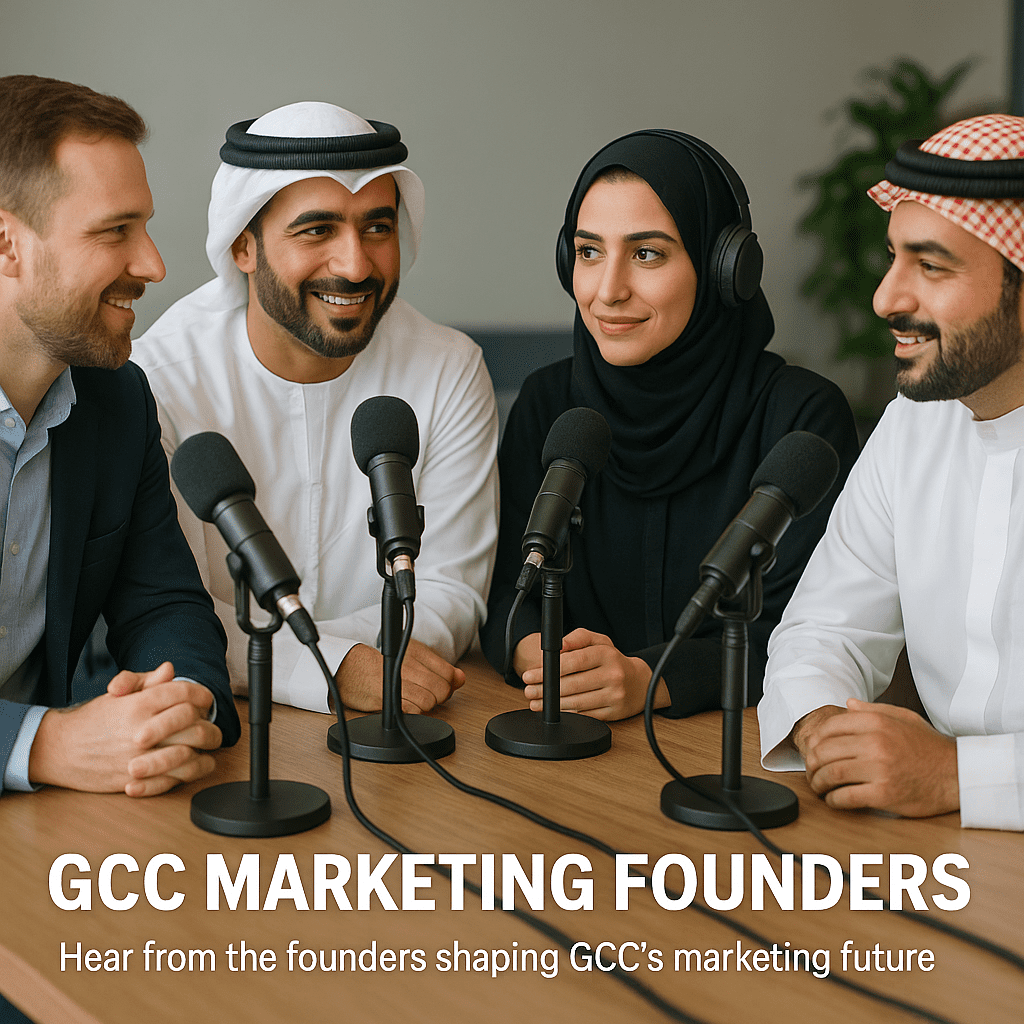
Hear from the Founders Shaping GCC’s Marketing Future
The Gulf Cooperation Council (GCC) region—spanning Saudi Arabia, the United Arab Emirates, Qatar, Bahrain, Kuwait and Oman—has undergone a profound digital transformation over the past decade. Today, pioneering agency founders are blending global best practices with deep local insights to meet the demands of hyper–connected consumers. In this article, we spotlight the strategies, lessons and industry benchmarks that have propelled GCC marketing agencies to the forefront of the global digital economy.
The Evolution of the GCC Marketing Ecosystem
Since the early 2010s, leading agencies have built the region’s digital infrastructure from the ground up. Agencies founded in Dubai and Riyadh have gradually shifted from simple website builds to full–stack solutions encompassing search, social, programmatic and CRM integrations. Their focus has moved from broad–brush campaigns to sophisticated, data–driven experiences that prioritize ROI and user engagement.
Key milestones in this evolution include:
- Responsive Web Design (2010–2015): Early adopters ensured mobile–first experiences long before global mandates.
- Data–Driven Performance (2016–2020): The rise of performance marketing solutions fueled hyper–targeted paid search and social campaigns, delivering measurable ROI.
- AI & Personalization (2021–2025): The integration of machine learning has enabled real–time optimization, automated creative testing and predictive customer segmentation.
Client-Centric Foundations: Insight from Agency Leaders
At the core of every successful GCC marketing agency lies an unwavering emphasis on client collaboration. Founders routinely highlight three pillars:
- Deep Technical Understanding: Translating complex requirements into user-friendly solutions.
- Collaborative Roadmaps: Co-creating strategies with clear KPIs and regular performance reviews.
- Transparent Reporting: Sharing real-time dashboards and actionable insights.
Real-World Testimonial
Jayson Haddad, General Manager of John Taylor Real Estate in Qatar, shares his experience:
“GCC Marketing delivered a best-in-class portal that married functionality with stunning design. Our user engagement increased by 35% within two months, and lead quality improved by 50%. Their ability to translate our vision into a scalable platform was exceptional.”
Technical Excellence and Innovation
Agencies in the GCC are investing heavily in proprietary tools and integrations that automate workflows and surface actionable insights. Whether optimizing bids in real-time or automating content variations for A/B tests, the technical sophistication of these agencies sets them apart.
- Automated Bid Management: Leveraging APIs from Google Ads and Meta to adjust bids based on live performance metrics.
- Custom Analytics Dashboards: Centralized reporting platforms that fuse web, app and e-commerce data for a unified view.
- Creative Automation: AI-powered asset generation tools for rapid production of localized visuals and copy.
By combining agile development methods with continuous integration/continuous deployment (CI/CD) pipelines, founders ensure that platforms remain up-to-date and secure—essential in a region where data privacy regulations are evolving rapidly.
Navigating the 2025 Marketing Landscape
AI-Powered Marketing Innovations
In 2025, AI is no longer a buzzword—it’s an operational standard. Agencies are deploying machine learning models to:
- Predict customer lifetime value (CLV) and adjust acquisition budgets accordingly.
- Automate ad creative testing, selecting top performers in real time.
- Generate personalized messaging at scale, from email campaigns to chat-bot interactions.
While AI accelerates execution, maintaining consumer trust remains paramount. According to a regional survey by Business of Apps, 43% of GCC consumers express caution toward AI-generated content. Successful founders strike a balance by combining algorithmic efficiency with human review, ensuring authenticity and regulatory compliance.
Personalization Beyond Basic Segmentation
Leading agencies have evolved from “Dear [First Name]” emails to full customer journey orchestration. By integrating CRM data, behavioral triggers and third-party insights, they deliver:
- Dynamic Landing Pages: Content that adapts in real-time based on visitor profiles.
- Behavioral Email Flows: Automated sequences triggered by in-app events or e-commerce actions.
- Predictive Recommendations: AI-driven product and content suggestions at every touchpoint.
This level of sophistication has boosted conversion rates by up to 30% for top-tier e-commerce clients in the UAE and Saudi Arabia.
E-commerce Growth and Retail Transformation
The GCC’s e-commerce market is projected to grow at a compound annual growth rate (CAGR) of 18.4% through 2027, outpacing global averages. Key drivers include high mobile penetration, advanced digital payment infrastructure and government investments in smart cities.
Innovations shaping the retail sector:
- Omni-Channel Integration: Unified experiences across web, mobile and in-store kiosks.
- Smart Mirrors & AR: Virtual try-ons in flagship stores for fashion and beauty brands.
- Contactless Self-Checkout: QR- and NFC-enabled point-of-sale solutions.
Marketing agencies are guiding retailers through digital roadmaps that blend brick-and-mortar strengths with online agility, driving average order values 20–25% higher in pilot programs across Riyadh and Dubai.
Launching a Marketing Venture in the GCC: The Founder’s Roadmap
Entrepreneurs aiming to build an agency in 2025 should follow a structured approach grounded in legal compliance, market validation and scalable operations.
1. Legal Foundation & Licensing
- Reserve a business name in line with local naming conventions.
- Choose between a Free Zone license (100% foreign ownership, simplified visas) or Mainland setup (access to local market contracts).
- Complete company registration with the Department of Economic Development (DED).
- Open a corporate bank account and secure residency visas for key personnel.
2. Early Traction Without External Funding
Many founding teams bootstrap to validate product–market fit before seeking investors. Key milestones for early traction include:
- First 10 Clients: Secure initial service contracts to test your value proposition.
- Repeat Engagement: Aim for at least 70% of these clients to return for a second project.
- Positive Testimonials: Collect 5–10 unsolicited reviews highlighting measurable outcomes.
- Pilot Success Stories: Convert at least 3 pilot programs into full-scale monthly retainers.
3. Building a Scalable Team & Technology Stack
Successful founders invest early in:
- Talent Acquisition: Recruit specialists in data analytics, creative production and campaign management.
- Technology Partnerships: Integrate with Google Marketing Platform, Meta Business Suite and top-tier martech vendors.
- Process Documentation: Develop playbooks for onboarding, campaign execution and reporting.
What Sets Top GCC Marketing Founders Apart
Across client reviews and industry benchmarks, the most successful founders share five defining traits:
- Client-First Mentality: Proactive communication with dedicated account teams.
- ROI-Driven Strategies: Clear performance metrics and continuous optimization.
- Creative Distinction: Bold, culturally relevant campaigns that resonate locally and regionally.
- Industry Expertise: Deep vertical knowledge across finance, real estate, retail and F&B segments.
- Continuous Learning: Investment in upskilling teams on emerging platforms and regulations.
The Road Ahead: Future Trends in GCC Marketing
Looking beyond 2025, GCC marketing founders are betting on:
- Voice Search & IoT Integration: Optimizing for voice-activated assistants in smart home devices.
- 5G-Enabled Experiences: Ultra-low latency campaigns with AR/VR activations in high-traffic malls.
- Blockchain for Ad Transparency: Leveraging distributed ledgers to verify ad delivery and combat fraud.
- Green Marketing Focus: Highlighting sustainability credentials as consumers prioritize eco-friendly brands.
By aligning technological innovation with cultural authenticity, GCC agencies will continue to raise the bar on digital engagement—shaping global best practices from the heart of the Middle East.
Conclusion
The founders leading the GCC’s marketing transformation are redefining what’s possible at the intersection of technology, creativity and cultural nuance. From agile agencies in Dubai to full-service powerhouses in Riyadh, these entrepreneurs have built scalable models that deliver measurable ROI, deepen consumer trust and drive sustainable growth.
For growth managers, performance teams and aspiring agency founders, the lessons are clear:
- Invest in **data and technology** to power agile decision-making.
- Embed **client collaboration** at every touchpoint.
- Balance **AI efficiency** with human oversight to maintain authenticity.
- Embrace **continuous learning** to stay ahead of regulations and platform changes.
As the GCC continues its digital ascent, the insights shared by today’s founders will light the path for tomorrow’s industry leaders.
